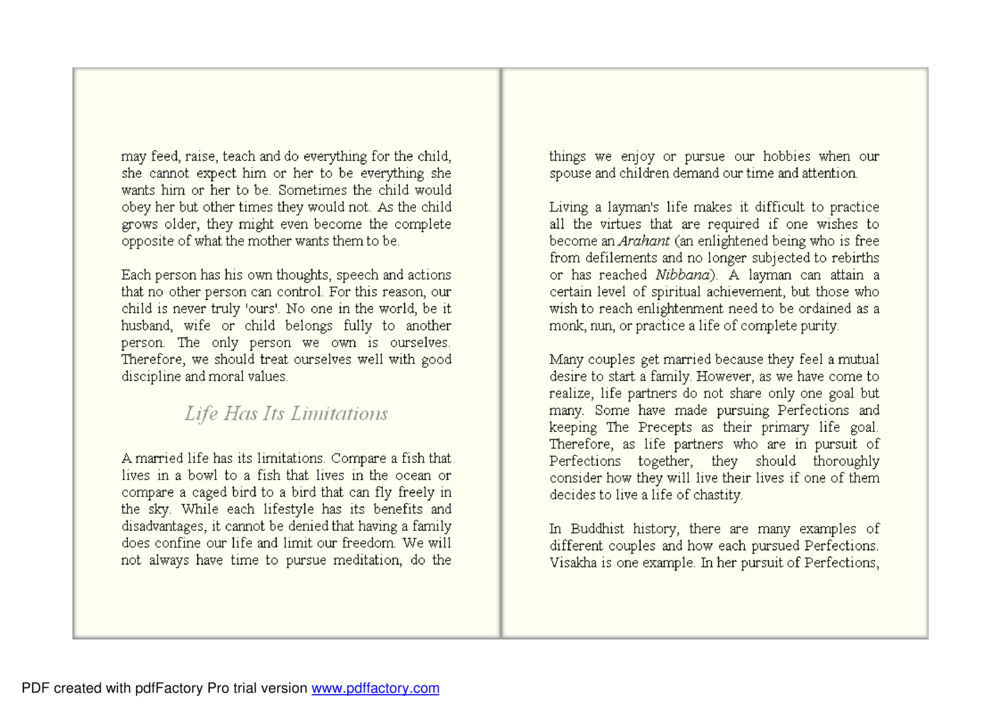Understanding Parenting and Marital Life : หน้า 30/62
Lovely Love : หน้า 30/62 Explores the dynamics of parenting, marital limitations, and the pursuit of personal and spiritual goals in relationships.
1 ครั้ง

สรุปเนื้อหา
This text discusses the nature of parenting, emphasizing that while parents nurture children, they can't entirely control their development. It highlights the limitations of married life, likening it to a confined fish or caged bird, and suggests that family demands can impede personal growth and the pursuit of enlightenment in Buddhism. It highlights the importance of mutual goals and considerations for couples aiming for spiritual perfection together, referencing Buddhist teachings and examples such as Visakha.
หัวข้อประเด็น
-parenting dynamics
-marriage limitations
-spiritual pursuits
-Enlightenment in Buddhism
-case study: Visakha
ข้อความต้นฉบับในหน้า
may feed, raise, teach and do everything for the child,
she cannot expect him or her to be everything she
wants him or her to be. Sometimes the child would
obey her but other times they would not. As the child
grows older, they might even become the complete
opposite of what the mother wants them to be.
Each person has his own thoughts, speech and actions
that no other person can control. For this reason, our
child is never truly 'ours'. No one in the world, be it
husband, wife or child belongs fully to another
person. The only person we own is ourselves.
Therefore, we should treat ourselves well with good
discipline and moral values.
Life Has Its Limitations
A married life has its limitations. Compare a fish that
lives in a bowl to a fish that lives in the ocean or
compare a caged bird to a bird that can fly freely in
the sky. While each lifestyle has its benefits and
disadvantages, it cannot be denied that having a family
does confine our life and limit our freedom. We will
not always have time to pursue meditation, do the
things we enjoy or pursue our hobbies when our
spouse and children demand our time and attention.
Living a layman's life makes it difficult to practice
all the virtues that are required if one wishes to
become an Arahant (an enlightened being who is free
from defilements and no longer subjected to rebirths
or has reached Nibbana). A layman can attain a
certain level of spiritual achievement, but those who
wish to reach enlightenment need to be ordained as a
monk, nun, or practice a life of complete purity.
Many couples get married because they feel a mutual
desire to start a family. However, as we have come to
realize, life partners do not share only one goal but
many. Some have made pursuing Perfections and
keeping The Precepts as their primary life goal.
Therefore, as life partners who are in pursuit of
Perfections together, they should thoroughly
consider how they will live their lives if one of them
decides to live a life of chastity.
In Buddhist history, there are many examples of
different couples and how each pursued Perfections.
Visakha is one example. In her pursuit of Perfections,
PDF created with pdfFactory Pro trial version www.pdffactory.com
หน้าหนังสือทั้งหมด
หนังสือที่เกี่ยวข้อง
Load More






























































